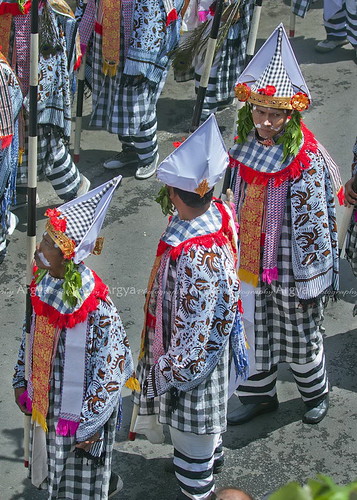Ubud has a big event on August 2011 ago. A huge bade is being built on Suweta street, next to the Ubud palace. A Bade is a towering structure used to carry human remains that are going to be cremated. The royal family of Ubud palace will hold a cremation ceremony on August 18th. This ceremony is called plebon (respectful word for ngaben which is the word that is more common) and it is dedicated to one of the late royal family member.
Plebon or Ngaben -- along with all its details, this rite is the last important ceremony in the cycle of a Balinese Hindu life. According to Hindu beliefs, the body of a human being consists of five natural elements. These are called Panca Maha Butha. They are: tanah (earth), api (fire), air (water), udara (air) and akasa (ether). These five elements are given by the Creator and become home for the human soul. So, when somebody dies, these five elements should be given back to where they belong in order to release the soul for its journey to eternal life.
For about 1 km along the main street, from the crossroads at Ubud Palace to Pliatan Palace, the cemetery at the east, the procession will take place. Thousand of people will gather on the street.
The cremation procession and associated ceremonies are important rituals in the Hindu rites of passage. The bodies of the deceased will be carried through the streets of Ubud by thousands of local people on top of a nine-tiered tower called “bade”. The procession will be accompanied by an elaborately decorated and venerated bull effigy (Lembu), with a five meter-long tail. The bull effigy is reserved for the elders of the Royal family and is thus seldom seen in cremation ceremonies.
Ngaben is the principle funeral rite in Bali’s Hindu society which aims to return the remains of the deceased to the elements from which all living things are created and to release the soul from all ties to this life.
---
crest white strips



